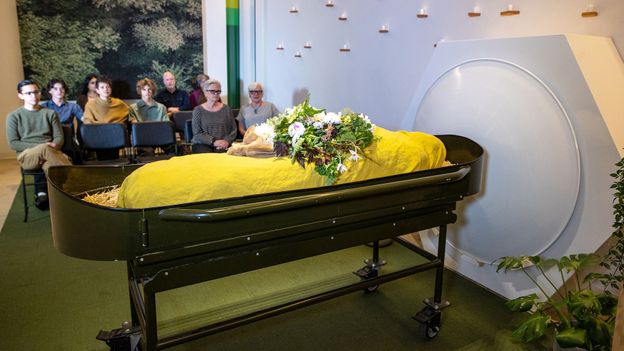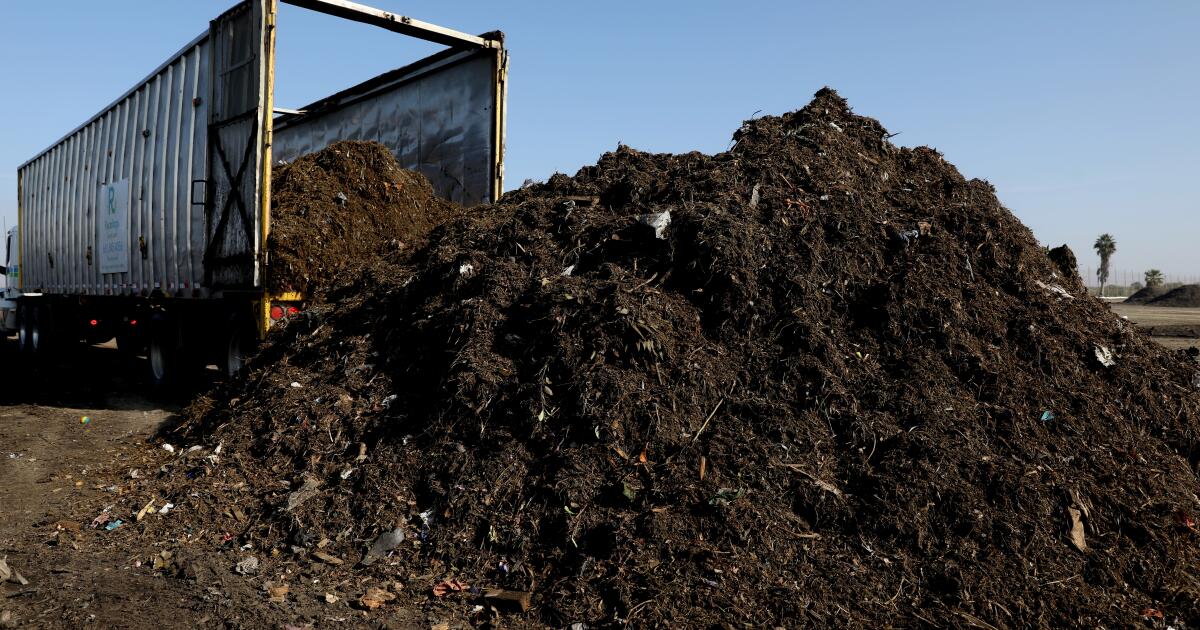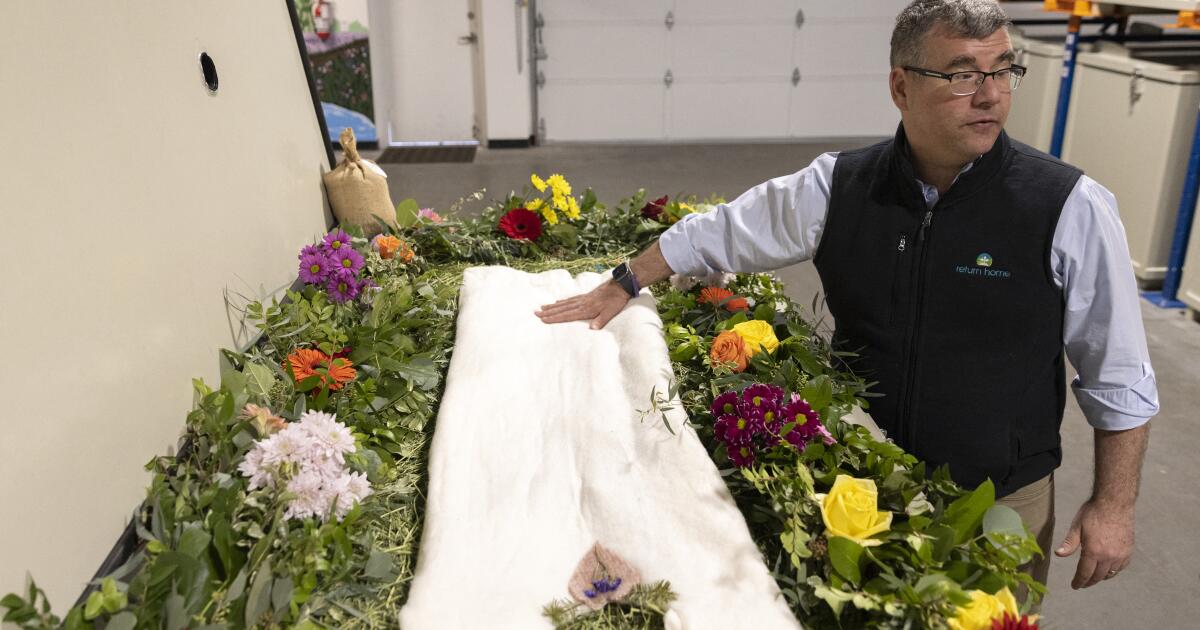Body composting a 'green' alternative to burial and cremation
ABCIn a suburban warehouse tucked between an auto repair shop and a computer recycling business in Denver, Colorado, Seth Viddal is dealing with life and death. Key points: Body composting reduces human remains through a natural organic process over months Colorado has become the second US state after Washington to allow human body composting Young people motivated by sustainability are expressing interest in the process He and one of his employees have built a "vessel" they hope will usher in a more environmentally friendly era of mortuary science. "It's a natural process where the body is returned to an elemental level over a short period of time," Mr Viddal said, likening the practice to backyard composting of food scraps. Mr Viddal's company, The Natural Funeral, charges $US7,900 for body composting, compared with $US2,200 for flame cremation, and he notes that a traditional burial and service in the area can run upwards of $US10,000. The Colorado Catholic Conference, a group of bishops aimed at moulding public policy, opposed the bill, saying body composting "does not promote human dignity".
History of this topic

Body composting: Why a radical form of burial is proving surprisingly popular in the US
The IndependentBody composting a 'green' alternative to burial, cremation
The Hindu
Body composting a 'green' alternative to burial, cremation
The IndependentDiscover Related








